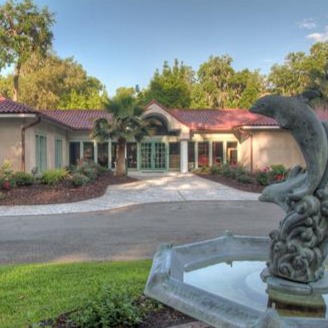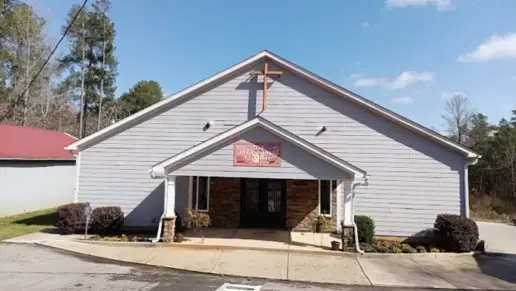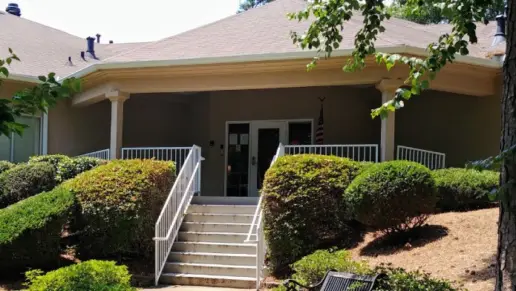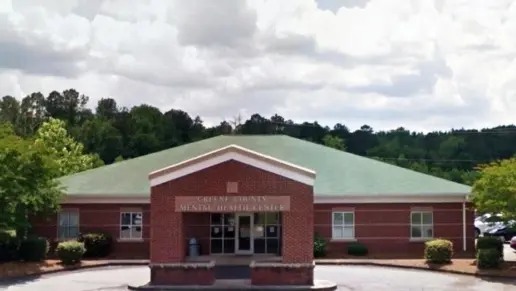A GREAT Place to start my recovery AGAIN . they nurses was very nice and the techs was so heipfull and Curtis .AS FARE AS THE COOKS was so nice, THE PLACE WAS SO VERY VERY CLEAN . i have NOTHING to say negative about Saint Simons By The Sea i would highly recommend this plac ...
About Saint Simons By The Sea
Saint Simons By The Sea in Saint Simons Island, Georgia, offers personalized mental health and substance use addiction treatment for adults and adolescents. They also address co-occurring disorders. This is when someone is simultaneously dealing with both mental health and substance use disorders. Their treatment options include medical detox, inpatient rehabilitation and intensive outpatient care. Specialized services are available for active-duty service members or veterans and their families. Additionally, they provide tailored recovery services for women via their Harmony women’s program.
They leverage their skilled and compassionate recovery team to deliver personalized treatment. Their Joint Commission accreditation confirms their commitment to quality care. The best part is that they accept Medicare and TRICARE. This makes treatment more convenient and affordable.
The facility offers a structured and supportive environment for residential treatment. Their program starts with an assessment and personalized treatment planning. This is followed by detox and continues through inpatient rehabilitation to intensive outpatient therapy. You can always stop at one level of care. However, following through this continuum of care is essential to achieving and maintaining lasting recovery.
You can leverage their confidential no-cost assessment to know if you’re dealing with substance use disorders. Their detox involves stabilization through medically managed withdrawal with 24/7 monitoring by trained professionals. The process is designed to manage acute and potentially dangerous psychological effects of withdrawal via the 12 Step approach. The recovery team may also administer medication if necessary to ensure safe and comfortable withdrawal.
Once stability is achieved the main therapy begins via inpatient rehabilitation. This program integrates the 12 Step model with evidence based practices such as cognitive behavioral therapy and dialectical behavior therapy. This is delivered via group and family therapy sessions. The goal is to address behavioral issues fueling your addiction and develop healthy coping skills that foster relapse prevention.
You’ll also participate in recreational therapy and nutritional counseling. This addresses the physical, mental and emotional aspects of addiction. They also offer life skill training, drug and alcohol education and 24/7 nursing care. Psychosocial assessments, psychiatric evaluation and medication management are provided by their mental health experts. This supports clients with co-occurring conditions. The duration of inpatient care will depend on your unique condition.
Upon discharge from residential treatment, you can continue your recovery journey via their intensive outpatient care. This program involves about nine hours of group therapy sessions weekly divided into three hours for three days a week. Individual sessions are available as necessary. These sessions are based on similar evidence based practices to those of inpatient rehabilitation. You’re also be required to consistently attend AA or NA meetings at your convenience outside the program setting. The great thing about this program is that it is structured but yet flexible. You won’t have to disrupt your daily routine to attend sessions.
Facility Overview
Latest Reviews
Rehab Score
Gallery
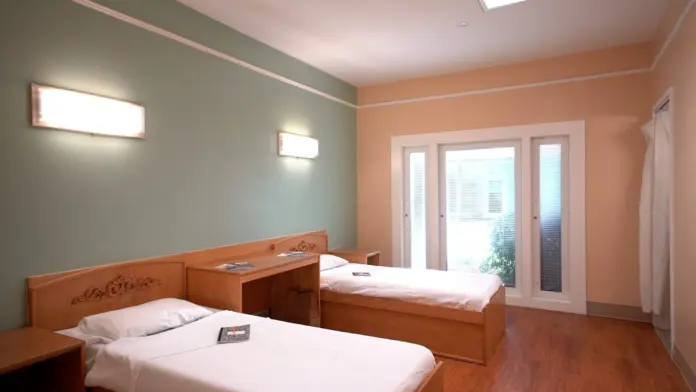
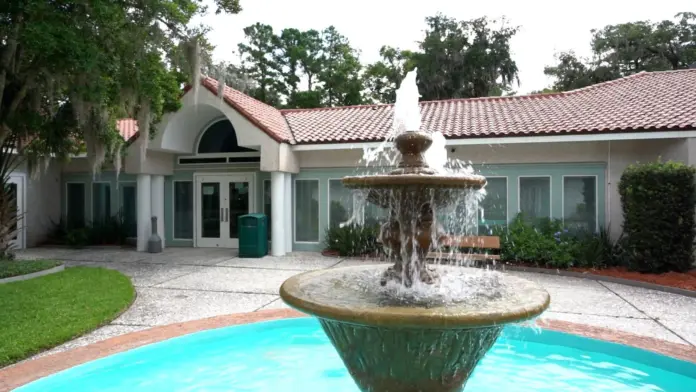
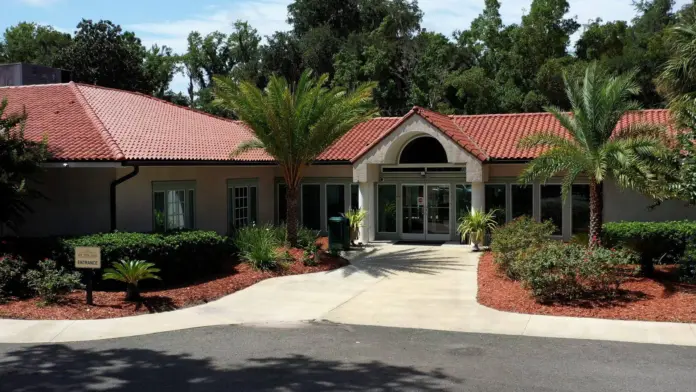
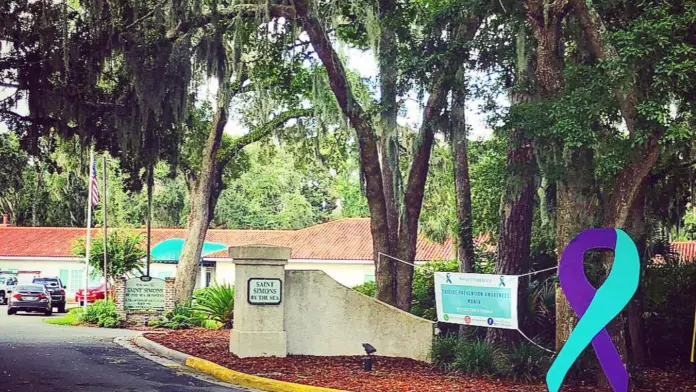
Location
Accepted Insurance

Other Forms of Payment
Private insurance refers to any kind of healthcare coverage that isn't from the state or federal government. This includes individual and family plans offered by an employer or purchased from the Insurance Marketplace. Every plan will have different requirements and out of pocket costs so be sure to get the full details before you start treatment.
Self-pay involves paying for treatment out of your own pocket. You can use savings or credit, get a personal loan, or receive help from family and friends to fund your treatment. If you don't have insurance or your insurance plan doesn't cover a specific program, self-pay can help ensure you still get the care you need.
Medicare is a federal program that provides health insurance for those 65 and older. It also serves people under 65 with chronic and disabling health challenges. To use Medicare for addiction treatment you need to find a program that accepts Medicare and is in network with your plan. Out of pocket costs and preauthorization requirements vary, so always check with your provider.
Military members, veterans, and eligible dependents have access to specific insurance programs that help them get the care they need. TRICARE and VA insurance can help you access low cost or no cost addiction and mental health treatment. Programs that accept military insurance often have targeted treatment focused on the unique challenges military members, veterans, and their families face.
Medicaid is a state based program that helps lower-income individuals and families pay for healthcare. Medicaid covers addiction treatment so those enrolled can use their coverage to pay for rehab. When a program accepts Medicaid the client often pays very little or nothing out of their own pocket.
Addiction Treatments
Levels of Care
Treatments
The goal of treatment for alcoholism is abstinence. Those with poor social support, poor motivation, or psychiatric disorders tend to relapse within a few years of treatment. For these people, success is measured by longer periods of abstinence, reduced use of alcohol, better health, and improved social functioning. Recovery and Maintenance are usually based on 12 step programs and AA meetings.
A quality drug rehab in Georgia can help you overcome addiction. This environment is designed to help you address the complex issues contributing to drug dependence. The goal of treatment is to give you the tools you need to make a full recovery.
Many of those suffering from addiction also suffer from mental or emotional illnesses like schizophrenia, bipolar disorder, depression, or anxiety disorders. Rehab and other substance abuse facilities treating those with a dual diagnosis or co-occurring disorder administer psychiatric treatment to address the person's mental health issue in addition to drug and alcohol rehabilitation.
A combined mental health and substance abuse rehab has the staff and resources available to handle individuals with both mental health and substance abuse issues. It can be challenging to determine where a specific symptom stems from (a mental health issue or an issue related to substance abuse), so mental health and substance abuse professionals are helpful in detangling symptoms and keeping treatment on track.
Opioid rehabs specialize in supporting those recovering from opioid addiction. They treat those suffering from addiction to illegal opioids like heroin, as well as prescription drugs like oxycodone. These centers typically combine both physical as well as mental and emotional support to help stop addiction. Physical support often includes medical detox and subsequent medical support (including medication), and mental support includes in-depth therapy to address the underlying causes of addiction.
Programs



Clinical Services
Cognitive Behavioral Therapy (CBT) is a therapy modality that focuses on the relationship between one's thoughts, feelings, and behaviors. It is used to establish and allow for healthy responses to thoughts and feelings (instead of unhealthy responses, like using drugs or alcohol). CBT has been proven effective for recovering addicts of all kinds, and is used to strengthen a patient's own self-awareness and ability to self-regulate. CBT allows individuals to monitor their own emotional state, become more adept at communicating with others, and manage stress without needing to engage in substance abuse.
Group therapy is any therapeutic work that happens in a group (not one-on-one). There are a number of different group therapy modalities, including support groups, experiential therapy, psycho-education, and more. Group therapy involves treatment as well as processing interaction between group members.
In individual therapy, a patient meets one-on-one with a trained psychologist or counselor. Therapy is a pivotal part of effective substance abuse treatment, as it often covers root causes of addiction, including challenges faced by the patient in their social, family, and work/school life.
Trauma therapy addresses traumatic incidents from a client's past that are likely affecting their present-day experience. Trauma is often one of the primary triggers and potential causes of addiction, and can stem from child sexual abuse, domestic violence, having a parent with a mental illness, losing one or both parents at a young age, teenage or adult sexual assault, or any number of other factors. The purpose of trauma therapy is to allow a patient to process trauma and move through and past it, with the help of trained and compassionate mental health professionals.
By incorporating recreational therapy into an addiction treatment program in Georgia, you learn to discover new interests and develop health and healthy coping mechanisms. Activities could include painting, group sports, or yoga. These encourage social interaction and support your physical fitness, which are vital factors in a successful recovery journey.
Amenities
-
Yoga Studio
-
Wifi
-
Private Rooms
Staff & Accreditations
Staff

CEO

CFO

Director of Risk Management & Performance Improvement

Director of Admissions

Director of Utilization Management

Medical Director

Chief Nursing Officer

Director of Human Resources

Director of Plant Operations

Director of Medical Records

Director of Pharmacy

Director of Business Development
Accreditations

LegitScript has reviewed Saint Simons By The Sea as part of their certification program, and has determined that it meets the LegitScript standards for legality, safety and transparency.
LegitScript verified in

State Licenses are permits issued by government agencies that allow rehab organizations to conduct business legally within a certain geographical area. Typically, the kind of program a rehab facility offers, along with its physical location, determines which licenses are required to operate legally.
State License: Georgia
License Number: 063-625

The Joint Commission, formerly known as JCAHO, is a nonprofit organization that accredits rehab organizations and programs. Founded in 1951, the Joint Commision's mission is to improve the quality of patient care and demonstrating the quality of patient care.
Joint Commission Accreditation: Yes
Contact Information
2927 Demere Road
Saint Simons Island, GA 31522
